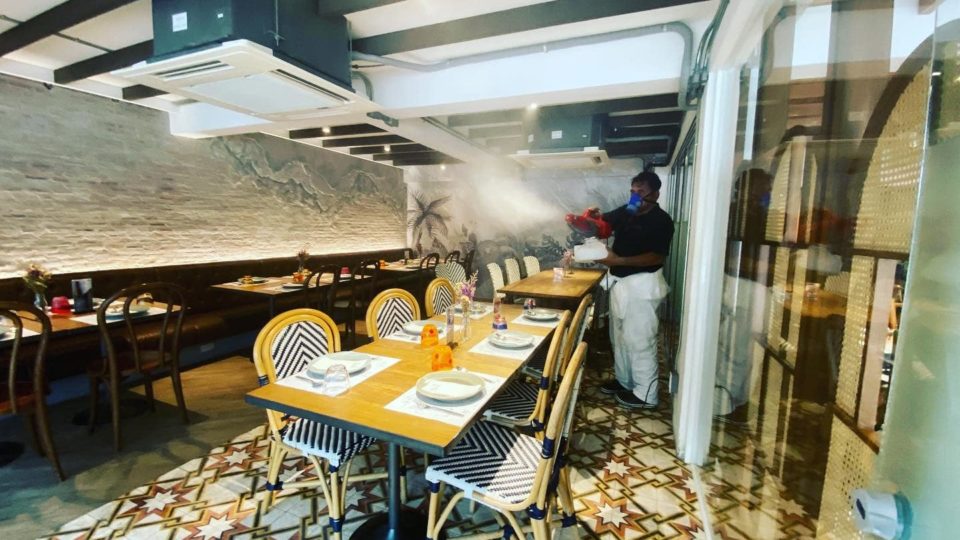Bangkok’s restaurants are already feeling the effects of the latest COVID-19 outbreak, and some are unhappy about what they say is the uneven application of anti-virus measures.
After COVID-19 cases soared due to a surge of cases linked to entertainment venues, several restaurants visited by ill patrons have been forced to shut their doors for two weeks, leading some to question why the many luxury malls and hotels that have been similarly visited are allowed to remain open.
“Since we discovered a customer infected with COVID-19 had visited our restaurant, we closed and shifted all orders to delivery,” Saphan Kwai’s Phed Phed Cafe said online.
“An officer checked in with us, and we told him we won’t open the restaurant but will continue to solely sell for delivery. The officer, however, said we couldn’t do that, as an official statement said it was mandatory for restaurants [in our scenario] to remain closed for 14 days. We asked them why only restaurants were forced to close while the major department stores are allowed to stay open.”
As restaurant closures began to spread outside the cluster of affected zones – Nana Hunter Coffee Roasters, Charm Eatery and Bar, Philtration and street food icon Jay Fai have been shuttered two weeks – food and beverage figures have made public pleas for support and understanding.
“Restaurants just reopened [after the last forced closures]. Many hoped that Songkran would help them recover. There are so few remaining now. Going back to 9pm closures and no sales of alcohol is a death penalty,” wrote Thitid “Chef Ton” Tassanakajohn of Le Du. “Where are most of these cases coming from anyway? Please don’t include us. #SaveRestaurants”
Then there are concerns that the prohibitionist elements who routinely scapegoat alcohol may have an undue influence.
In a since-deleted Facebook post, Chulabhorn Hospital Director Nithi Mahanonda suggested that he would, if able, permanently close all bars and pubs. He went on to say that his government would provide subsidies for bartenders to find jobs that are more beneficial to “a land of Buddhism.”
The post incensed many, who responded to newer posts by Nithi with screengrabs of his deleted post.
“Our country needs to acknowledge the importance of smaller spaces and businesses that provide both artistic and social aspects for rising acts, feeding into the city’s local character – the history of the arts and entertainment – in a way that makes them difficult to replace. Live music is a cultural asset, it needs attention, resources, and preservation, along with the relationships and communities that derive from it,” wrote Facebook user Natasha Patamapongs.
Currently, entertainment venues in the Khlong Toei, Wattana and Bang Khae districts must remain closed through April 19. Closures outside those districts are on a case-by-case basis.
Although government authorities have discussed early closures and a ban on the sale of alcohol at bars and restaurants, neither have been enacted yet.




